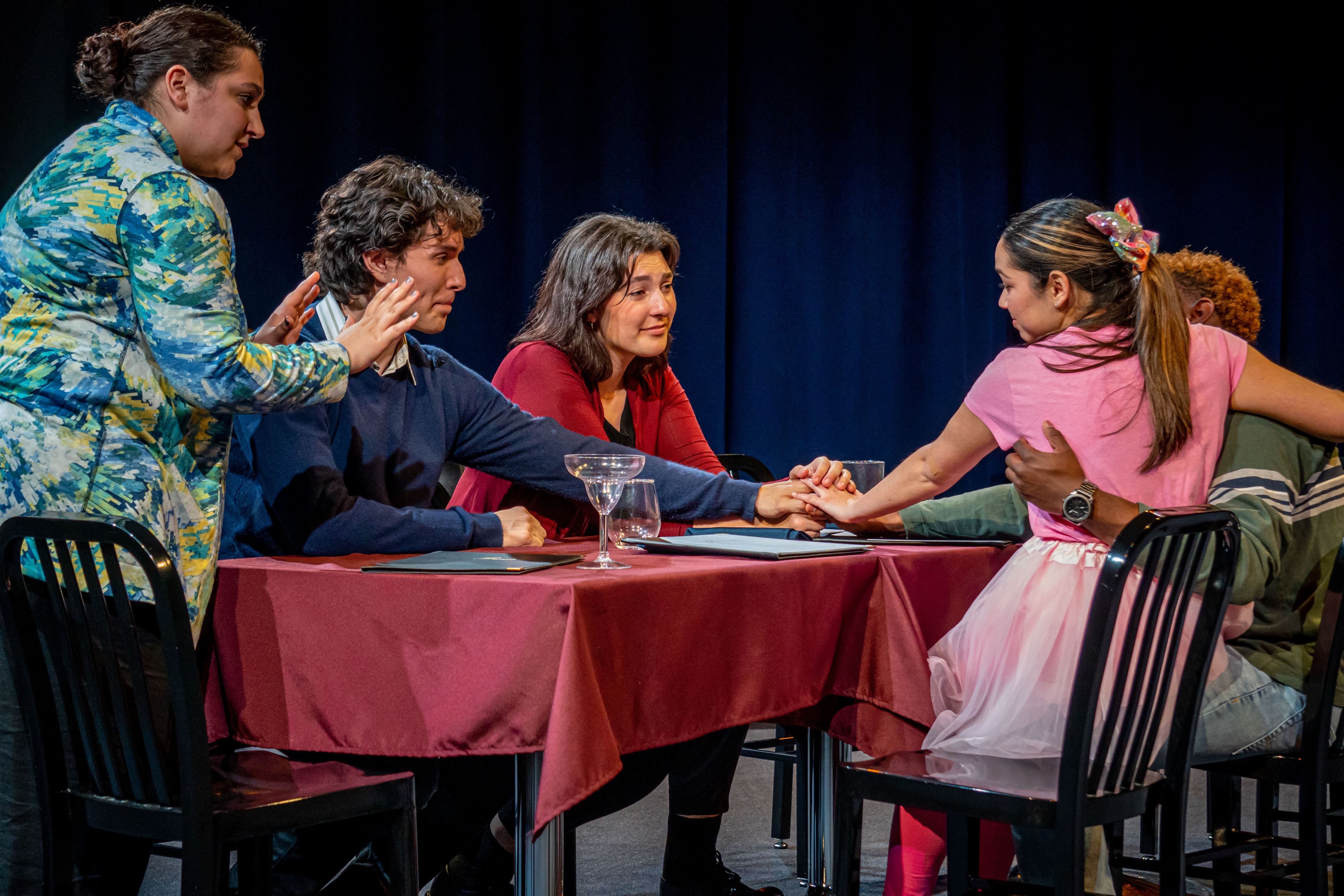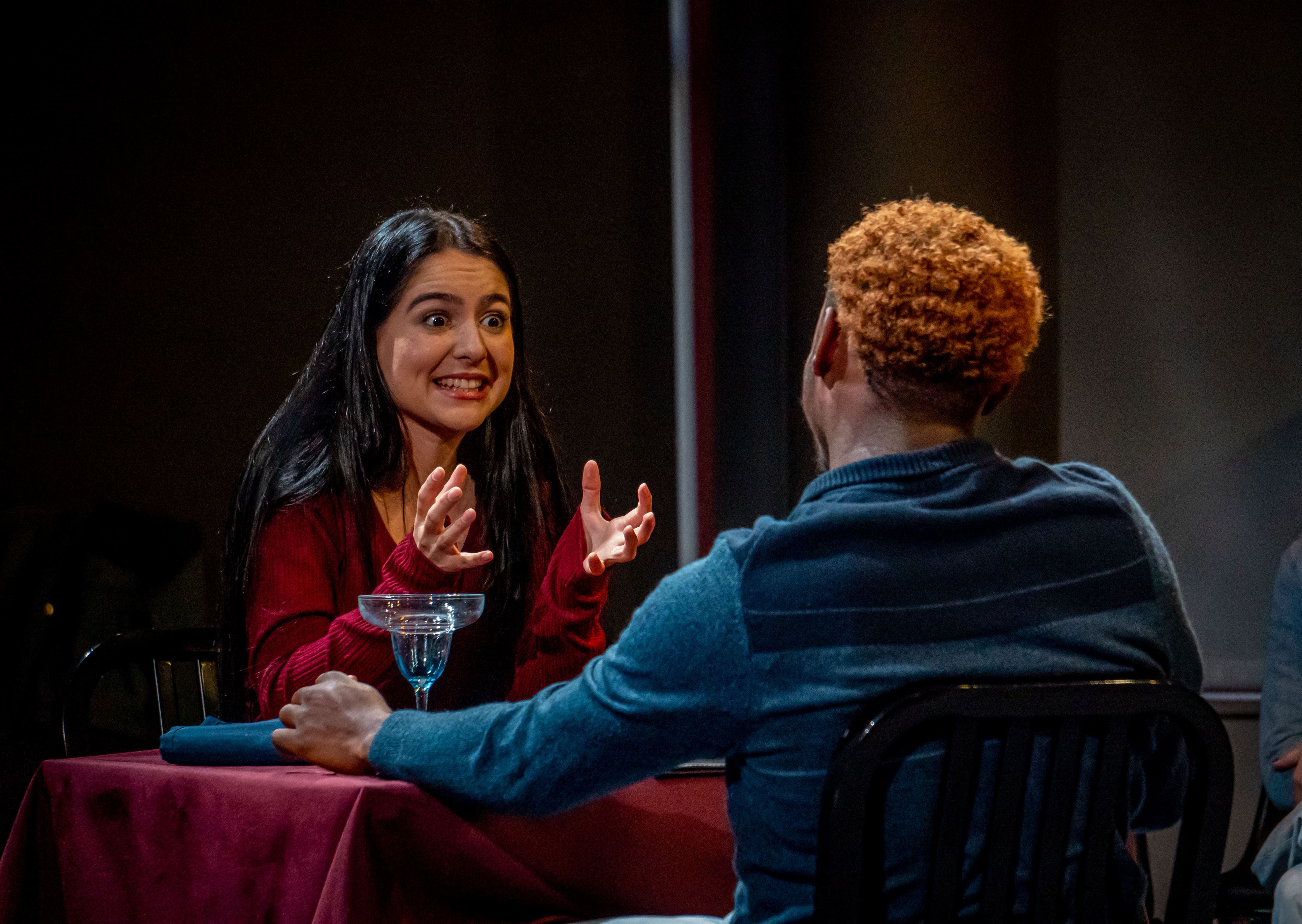#FocusDisruption is a collaboration of all the media outlets within Montclair State’s School of Communication and Media. Our goal is to report stories that highlight the effects or disruption of the last two years and the solutions that have come out of it. All aspects of day-to-day life have been altered but we will be primarily focusing on how mental health, education and the workplace have changed.
Told in only 90 minutes, “The Big Meal” walks audiences through the story of five generations of an American family trying to conquer the obstacles of life. Beginning with the love story of Sam and Nicole, audiences sit in on the development of their relationship and the building of their family.
Tackling infidelity, addiction and grief, “The Big Meal” prompts one to question their own mortality as they realize time is truly fleeting.

The characters celebrate the birthday of their grandfather/father, played by Jordan Boone. Lynise Olivacce | The Montclarion
Montclair State University’s production of “The Big Meal” is directed by theatre and dance professor Susan Kerner in her final production at Montclair State. Kerner is particularly attracted to stories regarding family and human connection. Being that the coronavirus (COVID-19) pandemic hindered everyone’s ability to physically connect with one another, ending the 2022 spring semester and her time at Montclair State with “The Big Meal” holds more emotional weight than ever before.
“I directed this play for Montclair [State] in 2014 and decided to do it again because it is one of my favorite plays,” Kerner said. “I felt like we all needed a joyful, healing play this year.”
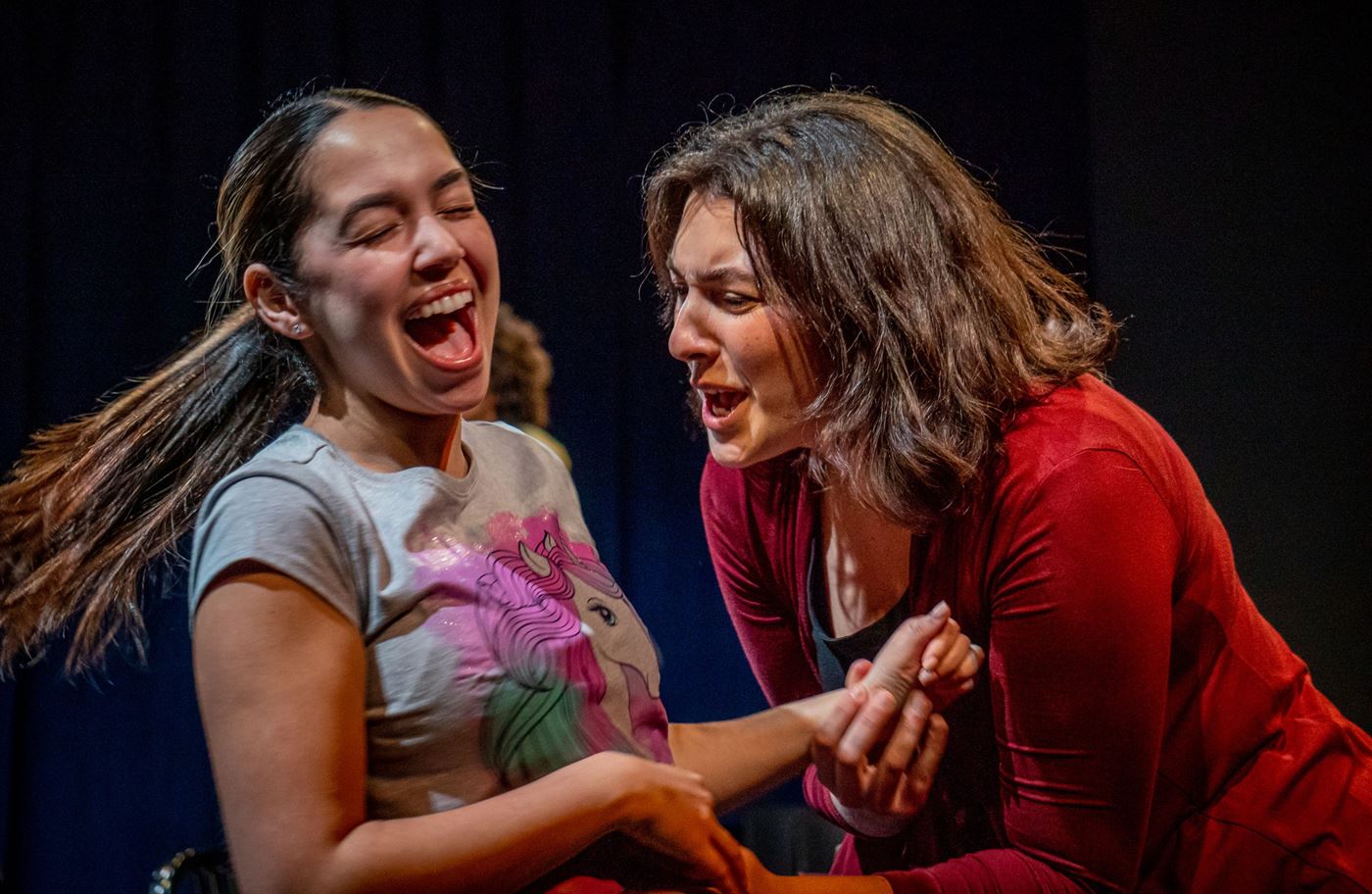
Caitlyn Capre (left), who plays Girl, has a playful moments with Kira Merkel (right), who plays Woman 2.
Lynise Olivacce | The Montclarion
Kerner also took this show as an opportunity to highlight diversity among families, especially after the rise of the Black Lives Matter protests during the pandemic that sparked conversations about representation within all art forms.
“I cast [‘The Big Meal’] in a way that is very diverse,” Kerner said. “Family members are very mixed, ethnically and racially. I can’t imagine now doing it another way. This has been a year with a lot of trauma and a lot of anxiety about issues of race for the department as well for everywhere. I think having this inclusive casting where you just didn’t even talk about that, they are just family. The audience totally accepts that.”
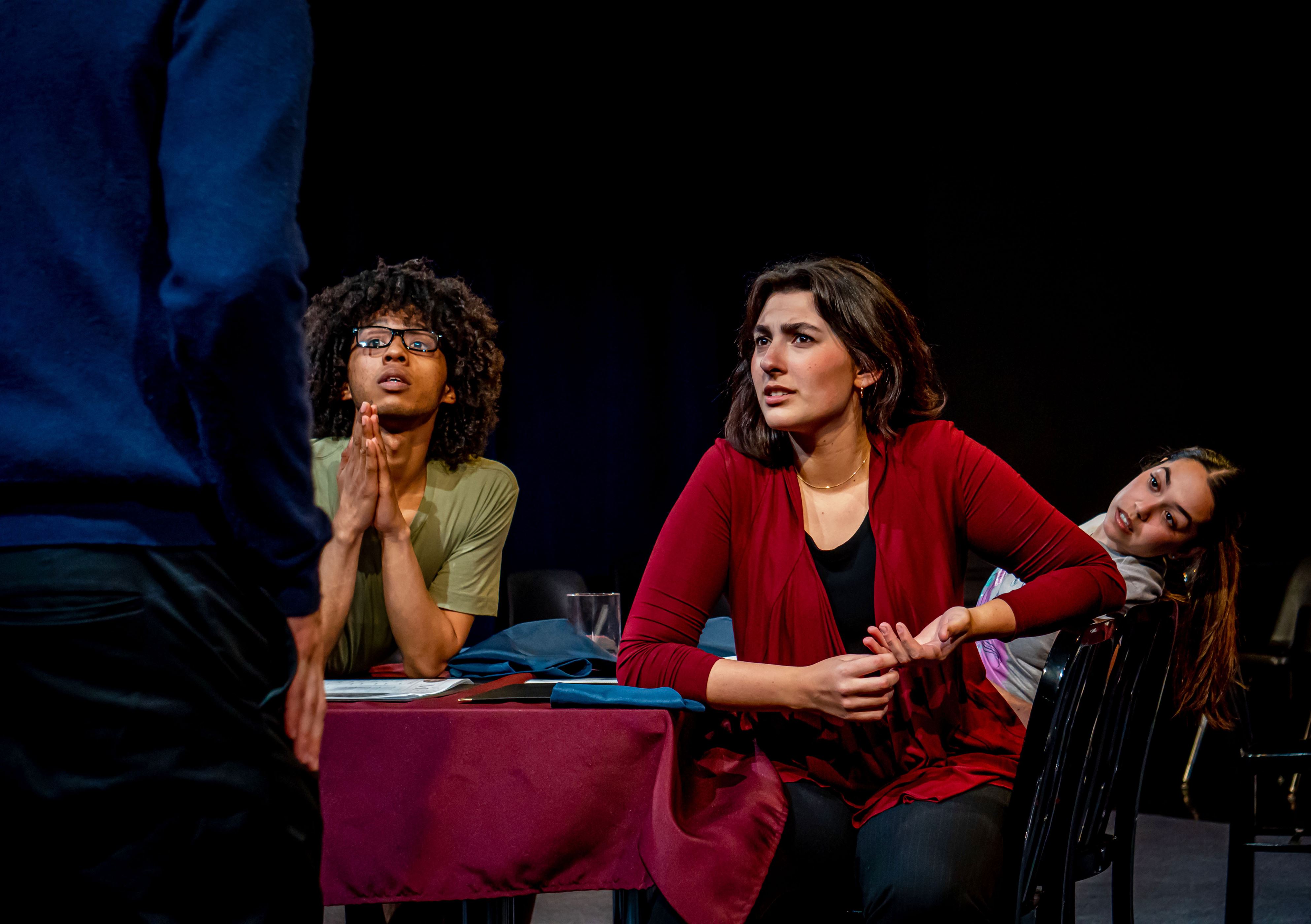
(From left to right): Emery Myers, Kira Merkel and Caitlyn Capre play a family.
Lynise Olivacce | The Montclarion
Almost two years of isolation brought upon by the pandemic changed not only how creatives think about their work, but how they practice it as well.
Sophomore Isaiah Robinson, who plays Man 3, was a freshman in the acting program during the 2020-2021 academic year when online instruction was implemented into the lives of students. With the difficulties that came with performing scenes through a computer screen and being unable to interact with classmates in person, he reflected on the complications distance and virtual learning had on the academic experience.
“We couldn’t intermingle with each other; we really couldn’t. We didn’t really have shared experiences because [one cohort] would have experiences this week, and I’d have a different experience the next week. It was really difficult to operate in that way.”

The father, Sam, played by Joe Baez (left), looks at his daughter, played by Templar Wright, and her boyfriend, played by Isaiah Robinson snuggling.
Lynise Olivacce | The Montclarion
Now that the Department of Theatre and Dance has done away with cohorts for the 2021-2022 school year, Robinson is glad to take on his sophomore year in the acting program through live performances.
“It’s been so much better having the opportunity to see so much of our classmates’ work,” Robinson said. “This semester, we really got to dive deep into who we are as creators, what we can do and what we can bring.”
Joe Baez, who plays Man 2, is finishing his senior year in the acting program with “The Big Meal.” As he and many juniors during the 2020-2021 academic year approached their senior year, the pandemic brought anxieties about the future and what steps should be taken next in the new normal.
“I had considered taking a gap year during the time of the pandemic,” Baez said. “I just kept pushing through and putting in the work. I wanted to come back knowing that I feel like my best self. I wanted to see what I wanted to start creating now and not feel like I had to keep delaying things until tomorrow.”
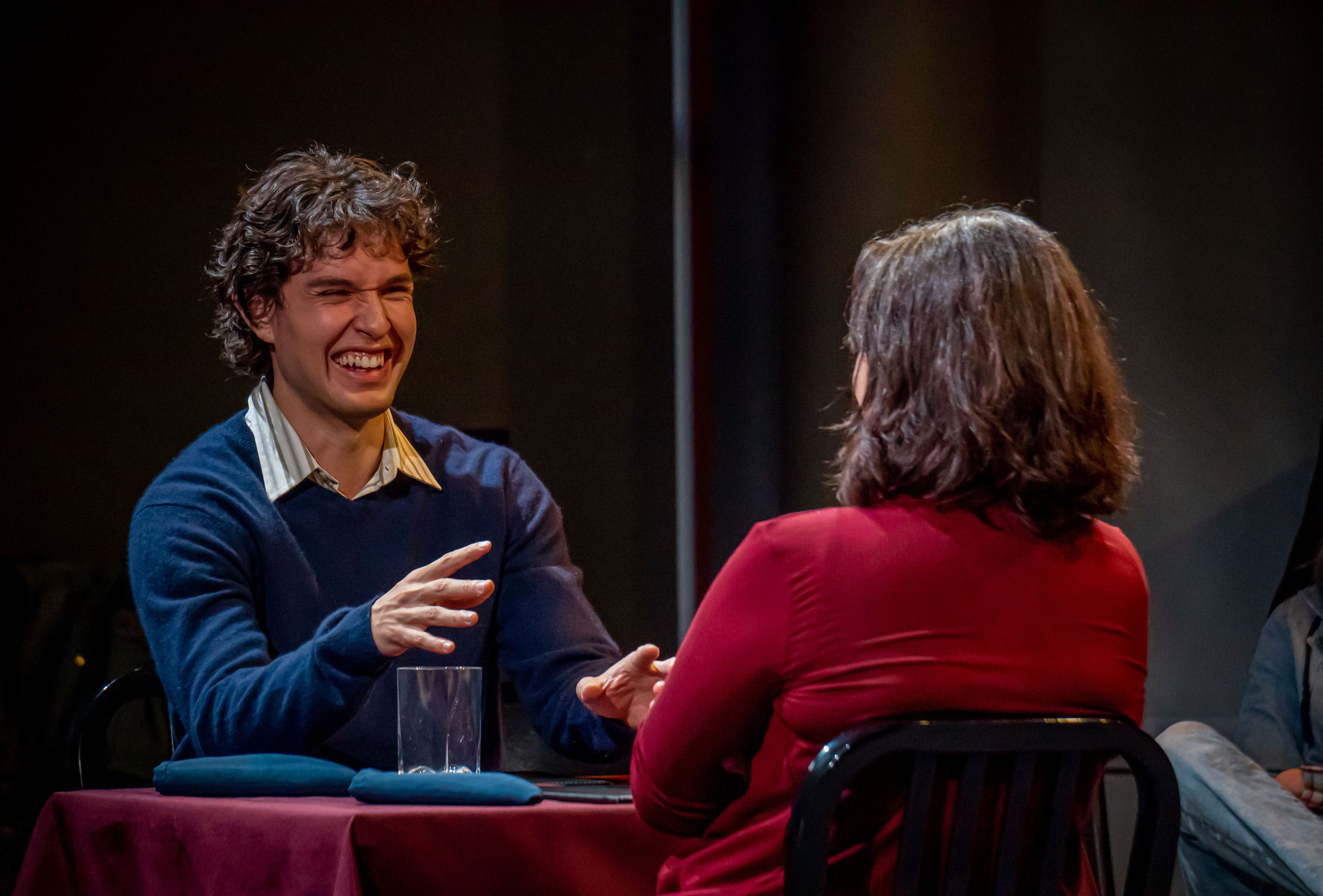
Joe Baez (left) and Kira Merkel (right) have an intimate conversation.
Lynise Olivacce | The Montclarion
Now that Baez is ending his senior acting career with a play centered deeply around connection, he is ecstatic to know he can end his time at Montclair State by returning to doing what he loves most.
“It’s such a beautiful show,” Baez said. “It’s a light-hearted show. To be ending my senior year performing again in person, it just provides a great outlook. It makes me want to get into the space more. I’m excited to work on my next project. I’m excited to see where my friends here go because they’re all spectacular actors.”
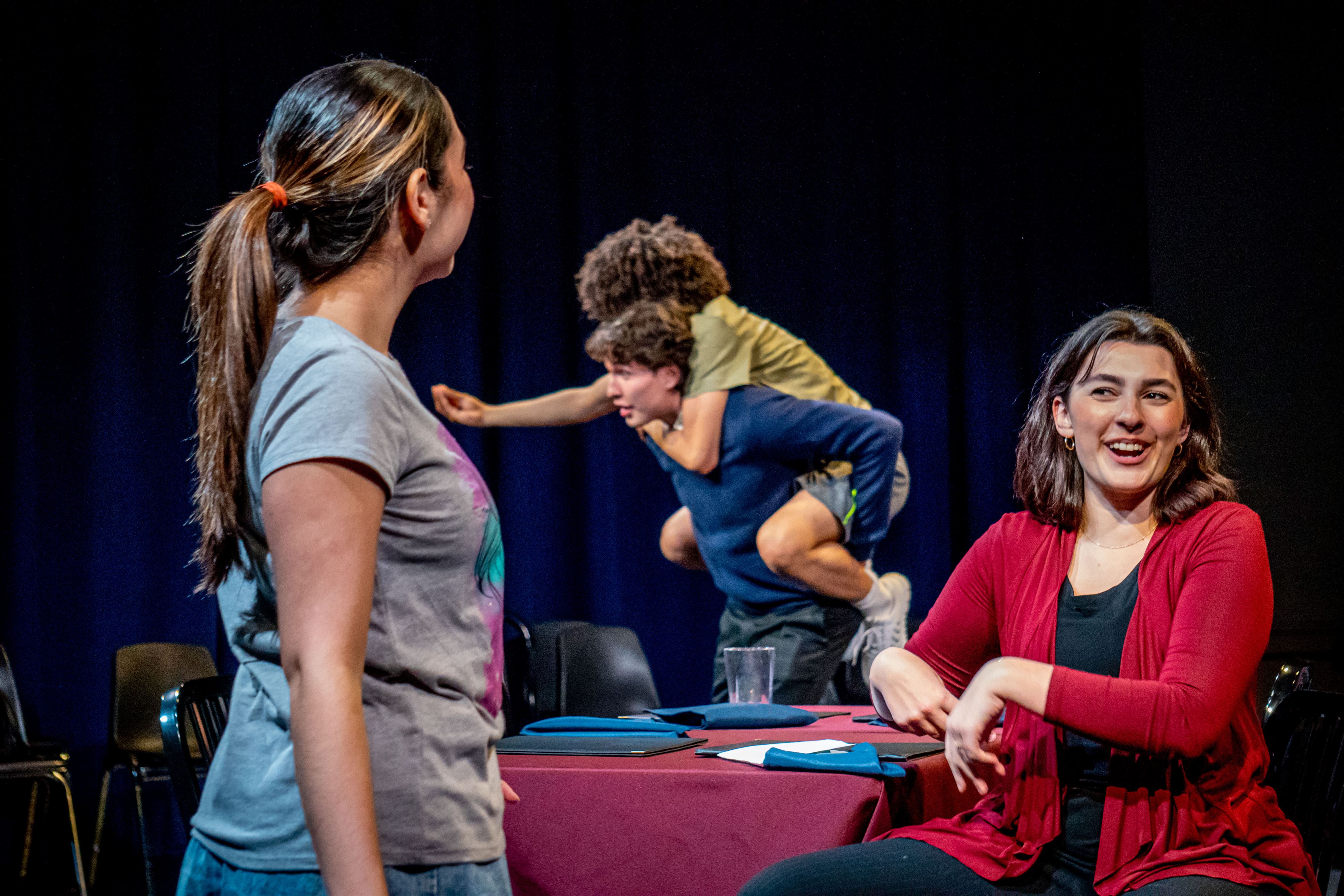
Caitlyn Capre (left) plays with Kira Merkel (right) as Joe Baez runs with Emery Myers on his back.
Lynise Olivacce | The Montclarion
“The Big Meal” is a reminder of how interconnected people once were and that it is possible to breathe life into it once more. The cast and crew behind the show, though experiencing numerous roadblocks throughout the pandemic, use those experiences to allow audiences to feel close to one another again.
As theater returns to live performances, reminders of what once was soon will become reality, closing the distance between one another and leaving society with the lesson of not taking things for granted.

